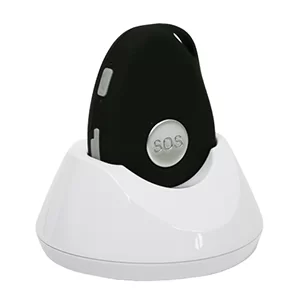At some point in life, your loved one may not be able to make their own decisions. When this happens, they may require you to make decisions for them. Although it’s a difficult situation to think about, it can be made easier through planning ahead. If your loved one may soon be unable to make decisions regarding health or financial matters, it may be time to put a power of attorney in place.
Power of attorney is a legal document that gives a person the authority to take care of the finances of someone who no longer can. It could be that they have become incapacitated or are in hospital temporarily. This may mean they need help keeping their affairs in order.
This legal document can only be set up when someone still has ‘mental capacity’. The Mental Capacity Act 2005 says a person is unable to make a decision if they are unable to do one of the following:
- Understand information relevant to a decision
- Retain that information long enough to make the decision
- Use or weigh that information, or
- Communicate the decision
Do I Need Power of Attorney?
If your loved one loses mental capacity and there is no power of attorney in place, you will have to apply through the courts to become a ‘deputy’. This can be a long and expensive process. Instead, urge your loved one to nominate a trusted person before it’s too late by setting up power of attorney.
Your loved one can nominate one or more individuals to act on their behalf. It’s important to remember that the document can only be set up while your loved one still has mental capacity. Once they’ve lost capacity it’s too late.
Types of Power of Attorney
There are three different types of power of attorney:
Ordinary Power of Attorney
An ordinary power of attorney makes decisions on financial affairs while your loved one still has mental capacity. This document may be used if a person wants someone to act for them, or if someone is in hospital and needs help keeping track of their affairs or needs assistance coming out of hospital.
This document only remains in effect as long as your loved one retains mental capacity. Furthermore, it is a simple matter for your loved one to rescind the order. By opting for an ordinary power of attorney, an individual can be reassured that their affairs will be well cared for whilst they are recuperating.
Read More on Ordinary Power of Attorney
Enduring Power of Attorney
Replaced by lasting power of attorney in 2007, this type of attorney can make decisions on financial and property affairs. If an enduring power of attorney was organised before October 1, 2007, then it should still be valid.
An individual who has been designated the attorney has a legal responsibility to act in their loved one’s best interests. Exactly what these are may be specified in the enduring power of attorney documentation. For example, one of the stipulations may be that the loved one wants to remain in their own home for as long as possible.
As aforementioned, this document can no longer be applied for. It ends when your loved one passes away, or can be cancelled by them. The attorney also has an option to step down.
Lasting Power of Attorney
The most common power of attorney, lasting power of attorney can cover financial decisions, health decisions, or both. A financial lasting power of attorney can be used while your loved one retains their mental capacity, but will also remain in effect if they lose this. A healthcare lasting power of attorney only comes into effect when your loved one loses mental capacity. It covers health and care decisions. Depending on which arrangement has been made, lasting power of attorney can make decisions on the following:
- Medical care
- Living arrangements
- Mortgage and bill payments
- Investments
- Property repairs
- General well-being, such as what your loved one should eat and who they have contact with
A lasting power of attorney needs to be applied for before your loved one loses mental capacity. However, for the healthcare LPA, it will not come into effect until this occurs. Conditions such as dementia, stroke, and brain injuries can lead to a loss of mental capacity. If your loved one is at risk of these, or has received an early diagnosis, it may be prudent to make an application.
Arranging both healthcare and financial power of attorney will require two separate applications. Both will remain in effect if your loved one loses mental capacity.
The rules regarding this document vary in Scotland and Northern Ireland, so be sure to look into the laws and guidelines where you live.
Read More on Lasting Power of Attorney
What Happens if You Don’t Have Power of Attorney?
Many people assume that a spouse or civil partner will automatically be able to access bank accounts or pensions and make decisions about healthcare. However, without power of attorney, they won’t have the proper authority.
If your loved one loses mental capacity and no power of attorney is in place, you will need to apply to the Court of Protection to be appointed as a deputy. The Court of Protection will:
- Decide whether your loved one has the mental capacity to make a decision
- If mental capacity has been lost, they will make an order relating to the health and care decisions or property and financial decisions
- Appoint a deputy to make decisions on behalf of the person who has lost mental capacity
A deputy is similar to an attorney and there are two types: property and financial affairs deputy and personal welfare deputy. A deputy’s duties are set out by the court and a deputy must always act in the interests of your loved one. A deputy can’t be chosen, only appointed by the court. This process can be lengthy and expensive.

How to Get Power of Attorney
Before arranging power of attorney, you may want to seek legal guidance to avoid problems later on. There is information on the document available on the government website or you could get in touch with Citizens Advice if you’d like to speak to someone. First, you’ll need to consult with your loved one and ask who they would like to appoint as their attorney. The person they choose needs to be over 18 and can be a relative, friend, partner, or professional. Your loved one can choose more than one attorney – they don’t need to be a British citizen or live in the UK to be eligible.
To begin the process, there are some forms which will need to be filled out. These can be found on the government website or requested from the Office of the Public Guardian. It’s important that the forms are filled out correctly. If there are any problems they will be returned to you and this can make the process longer. The forms need to be signed by a certificate provider to prove that the nominated person hasn’t been put under any pressure to sign them. The certificate provider needs to be someone the applicant knows well or a professional person such as a solicitor or doctor.
Details of friends and family who need to be informed about the power of attorney applications will need to be included. They then have six weeks to object to the documentation if they deem it necessary. If everything goes smoothly and the forms are accepted, the process should be completed in several weeks.
How Much Does it Cost?
When returning the forms, a payment will also need to be submitted. There is a fee of £82 per document, so if your loved one wants a health and welfare and property and financial affairs lasting power of attorney it will cost a total of £164.00. If your loved one receives benefits or earns less than £12,000 a year, they may be eligible for a reduction on these costs.
According to the Money Saving Expert, if you registered between April 2013 and March 2017 you may be due a refund of up to £54.00 on the registration fee.
Careline Alarm
Planning ahead doesn’t just apply to arranging a power of attorney. It also applies to the Careline Alarm. Make sure your loved one has help when they need it by getting them a Careline Alarm System. For more information about the alarm, please give our friendly team a call on 0800 030 8777 or send an email to info@careline.co.uk.
Editor’s Note: This article was updated on 10th April 2024 to reflect current information.
Essential Plan
Save £68 if paid annually
Basic pendant
- Not included, Automatic Fall Detection
- Included, 100 Metre Range
- Included, Wearable on Wrist or Neck
- Included, Waterproof
- Included, No Need to Charge
- Included, Easy to Activate
Plug-in Base Unit
- Included, 24/7 Monitoring Service
- Included, Lifetime Warranty
- Included, Plug-In, Easy Set Up
- Not included, No Phone Line Needed
- Not included, Our Fastest Connection Time

Plug-in Base Unit + Basic pendant

Basic pendant
- Not included, Automatic Fall Detection
- Included, 100 Metre Range
- Included, Wearable on Wrist or Neck
- Included, Waterproof
- Included, No Need to Charge
- Included, Easy to Activate
Plug-in Base Unit
- Included, 24/7 Monitoring Service
- Included, Lifetime Warranty
- Included, Plug-In, Easy Set Up
- Not included, No Phone Line Needed
- Not included, Our Fastest Connection Time
Get 3 months free by paying annually
Essential+Plan
Save £80 if paid annually
SmartTrigger Pendant
- Included, Automatic Fall Detection
- Included, 600 metre range
- Included, Wearable on Wrist or Neck
- Included, Waterproof
- Included, No Need to Charge
- Included, Easy to Activate
SmartLife Hub
- Included, 24/7 Monitoring Service
- Included, Lifetime Warranty
- Included, Plug-In, Easy Set Up
- Not included, No Phone Line Needed
- Included, Our Fastest Connection Time

Rapid Connect Hub + SmartTrigger Pendant

SmartTrigger Pendant
- Included, Automatic Fall Detection
- Included, 600 metre range
- Included, Wearable on Wrist or Neck
- Included, Waterproof
- Included, No Need to Charge
- Included, Easy to Activate
SmartLife Hub
- Included, 24/7 Monitoring Service
- Included, Lifetime Warranty
- Included, Plug-In, Easy Set Up
- Not included, No Phone Line Needed
- Included, Our Fastest Connection Time
Get 3 months free by paying annually
Complete Plan
RecommendedOur Safest AlarmSave £100 if paid annually
Fall Detector
- Included, Automatic Fall Detection
- Included, 300 Metre Range
- Included, Wearable on Wrist or Neck
- Included, Waterproof
- Included, No Need to Charge
- Included, Easy to Activate
SmartLife Hub
- Included, 24/7 Monitoring Service
- Included, Lifetime Warranty
- Included, Plug-In Anywhere, Easy Set Up
- Included, No Phone Line Needed
- Included, Our Fastest Connection Time

Rapid Connect Hub + Fall Detector

Fall Detector
- Included, Automatic Fall Detection
- Included, 300 Metre Range
- Included, Wearable on Wrist or Neck
- Included, Waterproof
- Included, No Need to Charge
- Included, Easy to Activate
SmartLife Hub
- Included, 24/7 Monitoring Service
- Included, Lifetime Warranty
- Included, Plug-In Anywhere, Easy Set Up
- Included, No Phone Line Needed
- Included, Our Fastest Connection Time
Get 3 months free by paying annually
GPS Pendant Plan
Save £88 if paid annually
GPS Location Tracking + Inbuilt Speaker

- Included, Go Anywhere Alarm
- Included, GPS Alarm Pendant
- Included, GPS Location Tracking
- Included, Optional Fall Detection
- Included, Inbuilt Speaker
- Included, Charging Base Station
Get 3 months free by paying annually
GPS Pendant Plan
- Go Anywhere alarm
- GPS Alarm Pendant
- GPS Location Tracking
- Optional Fall Detection
- Inbuilt Speaker
- Charging Base Station

Get 3 months free by paying annually




Leave a Reply